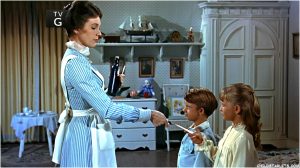Have Courage and be Kind
This piece originally appeared at TheCaregiverSpace.org.

Photo: Cinderella (2015)
Walt Disney Pictures
“Have courage and be kind” is one of those wonderfully memorable movie quotes to live by that is so simple yet so profound. In the 2015 action version of the Disney film, Cinderella receives this advice from her dying mother.
My husband, Ben, was truly courageous in how he handled his ALS throughout his six-year battle. He pushed himself to keep doing things like walking, using his computer and eating until he absolutely could not do them anymore. It helped him emotionally and, I believe, physically, too. I was his hands at times, and his mouth when his speech became impaired. He maintained a good sense of humor, especially when I got creative with the food processor to make meals for him when chewing and swallowing were difficult.
People also called me courageous and it never resonated with me. I didn’t have to deal with that disease and dying. But, I’m finally realizing that as caregivers, we are, indeed, courageous in dealing with the many changes in our lives and in the lives of our loved ones, and in helping them deal with these changes. We compassionately provide care. We provide comfort and cheer when they seem out of reach and hard to feel. We have conversations that are so difficult about things we wished we would never have had to consider. In my case, I had to face a future that would not include Ben. But, so importantly, we need to be kind in the midst of these very stressful and emotional situations. It may seem obvious, but it isn’t always easy.
From our own perspectives, Ben and I were both overwhelmed by the amount of help he required, the way his world was shrinking and how our lives were changing forever. Our relationship was shifting from husband and wife to patient and caregiver, and that did not come easily. We didn’t always handle it graciously. Our feelings got hurt, our patience was tried, our moods sometimes were sad and depressed. There were times when I wondered what happened to my kind and loving Ben. To be fair, I’m sure he felt the same way about me. Sometimes we would try to talk it through, and sometimes it was just too difficult. Something would bring us to a loving center–and it was usually something simple, yet kind–a smile, a thank you, or when he couldn’t speak any longer, a long blink, which was our sign for a kiss.
I still have to remind myself that ALS affected Ben in so many ways and that underneath the difficult behavior was my real Ben and his real Abby. The rough times often made me question whether I was a good enough caregiver, and that has stayed with me. I got angry that he did not express appreciation for and was very critical of my caregiving at times, but then got angry at myself for thinking that my feelings were important relative to his needs. Then, I questioned if I deserved any appreciation because maybe I was not doing a great job. I have been reminded frequently to be kinder to myself. Maybe my courage is now found in facing the memories with love but also with honesty.
In addition to the dynamics of our relationship, there were the times we had to deal with various professionals regarding his care. These were not necessarily medical professionals. They were often administrators who advised on health insurance and financial paperwork, or a variety of social and other services. There were so many questions, such confusion, and overriding fear about his future. We both had to courageously persist to ensure good care and financially sound advice. Some people were kind and helpful, and others were not. My dad taught me long ago that you get more with honey than with vinegar, and kindness did come in handy, even in keeping me calmer, though it did not necessarily lead to better information. That was a constant struggle. But, when things are not going very well, and you are tired and scared, and you feel like you repeated yourself too many times and are not getting any useful help, being kind does take a lot of effort!
Maybe it seems odd to say that at times I had to remind myself to be kind. After all, I like to think of myself, as I think many people do, as a kind woman. But, when you’re not at your best, physically and/or emotionally, kindness is not always the first quality that comes to the surface. I do know that with Ben and me, when we stopped to remember the love, especially when we were frustrated to tears, the kindness did invariably come through in the caring. And, it made things better.
Cinderella’s mom gave her very good advice! I call that kind of inspiration pixie dust for caregivers (and for everyone else, too). Ben and I loved all things Disney, and as a caregiver and in grief, I found much comfort in quotes like this one. And, by the way, I thought this was a beautiful remake of the animated version.











